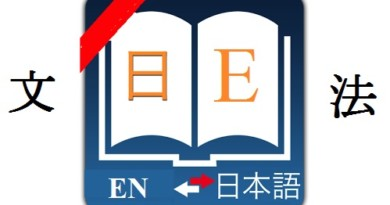Compare 始める hajimeru and 出す dasu
Hello everyone! Suppose there is a situation like this: You are on the road and suddenly it rains, which expression will you choose to express the idea “the rain suddenly falls”,(降り)出す or 始める ? To help you understand the usage of 始める and 出す better, in this post, Learn Japanese Daily will introduce to you the lesson: Compare 始める hajimeru and 出す dasu.

Similarities
Both grammar structure mean “something will now be in a state which it has not been in before”. In other words, they mean “start doing something”.
Both structure are used with Vます(remove ます).
Differences
始める hajimeru
始めるmeans “start doing something that is continuous”. It emphasizes the continuity of things.
It can be used with nouns in the form「Aはじめ」.
Example :
現在は暇なので、母に手紙を書き始めた。
Genzai ha hima na node, haha ni tegami wo kaki hajimeta.
Now that I’m free, I started writing a letter to my mom. (Starting writing a letter to my mom is a continuous action, not a sudden action).
「開始」という声が聞こえて、参加者は走り始めた。
“Kaishi” toiu koe ga kikoete, sankasha ha hashiri hajimeta.
After hearing “Start”, the participants started running.
皆は踊り始めました。
Mina ha odori hajimemashita.
Everyone started dancing.
出す dasu
出す means “start doing something that is continuous”, but it also means “something that naturally stopped and something else suddenly came out”. It emphasizes the abruptness and urgency of things.
It can be used with nouns in the form 「Aだし」, which means “first part”.
Example :
子供は友達と一緒に遊ぶとき、何となく急に泣き出した。
Kodomo ha tomodachi to isshoni asobu toki, nantonaku kyuu ni naki dashita.
My child suddenly started crying when playing with friends. (“to cry” is a sudden action, not a continuous action)
父は弟の行為を見て、怒りだした。
Chichi ha otouto no koui wo mite, okori dashita.
My father became angry when he saw my younger brother’s actions.
会議で皆が緊張しそうに集中していたのに、田中さんは突然笑い出した。
Kaigi de mina ga kinchou shi souni shuuchuu shiteita noni, tanaka san ha totsuzen warai dashita.
Although everyone was nervous and concentrated on the meeting, Mr. Tanaka suddenly laughed.
Exercise for consolidating knowledge:
Choose the correct answer :
帰る途中(とちゅう)で急に雨が降り(出して・始めて)、ずぶぬれになった。
彼女は寂し(さびし)げに一人で酒を飲み(出した・始めた)。
何となく足が痛み(出して・始めて)たまらなくて医者に診て(みて)もらった。
あの豆腐は冷蔵庫で長い間に置かれて、腐り(くさり)(出した・始めた)。
10分だけ離れ(はなれた)たのに、恋人のことを想い(出した・始めた)。
あのロボットは突然動き(出した・始めた)。
In this post, Learn Japanese Daily has helped you compare 始める hajimeru and 出す dasu.
See other similar lessons at category: : japanese grammar dictionary

As Japanese, I think 思い始めた it’s not incorrect but 思い出した sound more natural.